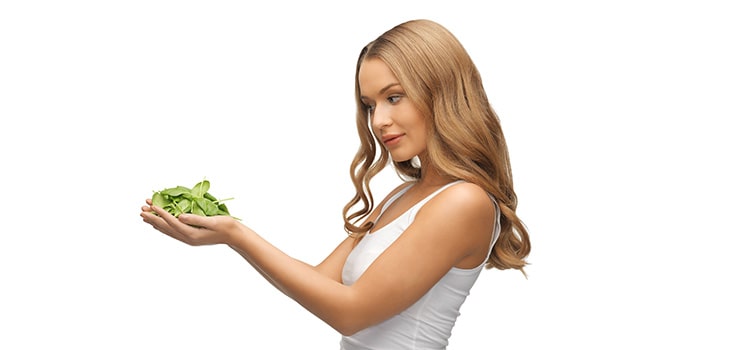Plant-Based Iron-Rich Diet Found to Reduce PMS Symptoms by up to 40%

Pre-menstrual syndrome (PMS) is a monthly occurrence for many women. The cramping, migraines, lethargy, and moodiness can range from an inconvenience to incapacitating for some. For many women, prescription medications are their only solution – or so they think. However, scientists with the University of Massachusetts Amherst School of Public Health and Health Services and Harvard have recently found that women with a diet rich in iron are far less likely to suffer from the symptoms of PMS.
Women: Increase Iron Intake, Reduce Symptoms of Pre-Menstrual Syndrome
For the study, which was published in the American Journal of Epidemiology, researchers studied 3,000 women between the ages of 25 and 42, assessing their mineral intake through food questionnaires for 10 years. Less than half were diagnosed with PMS at the study’s completion, and 1,968 were free from the syndrome.
After accounting for calcium intake and other factors that could influence their symptoms, scientists found that those who ate a diet rich in iron were 30 to 40% less likely to develop PMS. Even more exciting is which foods that iron came from.
According to senior author of the study Elizabeth Bertone-Johnson:
“We found that women who consumed the most non-heme iron, the form found primarily in plant foods and supplements, had a 30 to 40 percent lower risk of developing PMS than women who consumed the lowest amount of non-heme iron.”
This is significant because most individuals immediately think of animal products when iron comes to mind.
Related Read: 6 Home Remedies for Menstrual Cramps
Additionally, the researchers found that those with a higher intake of zinc were also at a reduced risk of PMS. Zinc is another mineral that can easily be obtained from plant-based sources.
“Our findings need to be replicated in other studies. However, women at risk for PMS should make sure they are meeting the RDA for non-heme iron and zinc,” concluded Bertone-Johnson.
Plant based iron sources include foods like lentils, spinach, quinoa, non-GMO soybeans, swiss chard, and black beans. Zinc can be found in pumpkin seeds, rolled oats, chia seeds, and cocoa powder.
Because the research was done on women before and following the onset of menstruation, it also serves as a good reminder to parents: feed your daughters well and ensure you are including healthy sources of iron and zinc.
Additional Sources:
